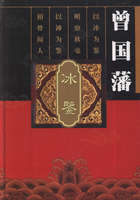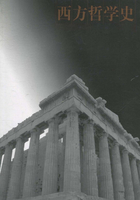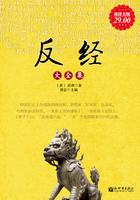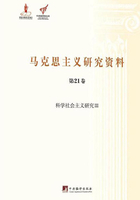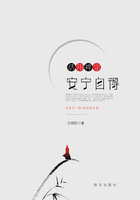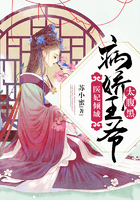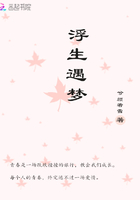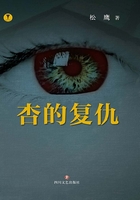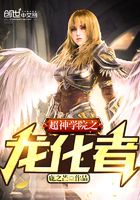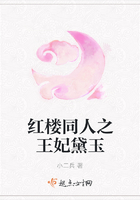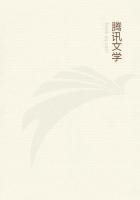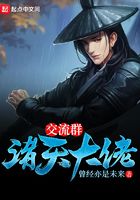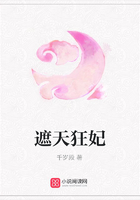Karen Turner[30]
INTRODUCTION
This paper was prepared for the conference on "The Yellow Emperor's Thought vs.the Hundred Schools of Thought in the Pre-Qin Period," sponsored by the KoGuan Chinese Rule of Law and Principle Studies Center of Tsinghua University, September 12-14, 2014. I have revised the original version after learning a great deal from the conference. First, I want to thank the Law Center at Tsinghua University and Professor Leo KoGuan's, support for this important undertaking. At the conference at Zhuolu in September, unresolved questions, such as the differences between Huang Di ideas and those of Han Feizi and the Huang Lao texts, for example, were discussed in depth. My understanding of Huang Di's role in Chinese culture expanded as a result of the conference. I realize now that not only was this great sage a law giver, institution builder, diplomat, and astute warrior. He was also an advocate for the female side of nature and an environmentalist, as Professor Leo Koguan pointed out during the meeting.[31]It was also useful to learn that Huang Di maintained the Daoist emphasis on enjoying life! He was not simply a workaholic, but a man of balance in all aspects of his being and thus a superb role model for all the ages.
I am not as well versed as my Chinese colleagues about the Huang Di tradition and its relation with Warring States texts and so will limit most of my remarks to comparisons with the classical Western traditions. But I do want to begin by noting that the Xuan Yuan writings are very different in some general ways from other late Warring States texts. Authors of texts, such as Huainanzi, legitimate Huang Di as a law giver who must obey the laws himself, as we find in the Mawangdui silk books. But Huainanzi is an eclectic text that often contradicts itself about the source of cultural norms. Similarly, the Guanzi calls for consistent laws and punishment, but it too continues to use the past to legitimate arguments about proper governance. It is important to remember that even the legalists-the declared enemies of tradition-used historical examples from the practices of the ancient sage kings to justify reform. Indeed, tradition, the "old ways" have always carried great weight in any culture.[32]To truly think beyond historical time, as do the Huang Di texts is unusual, for any time, any place.
What is different about the Huang Di theories of universal law that are put forth in the silk books from Mawangdui is that they are consistent and universal. Much earlier than in the West they articulate a theory of law that applies to all humans, no matter what their ethnicity, religion, or local customs. In fact, as Professor Leo Koguan has so eloquently written, the Huang Di tradition has produced a very progressive theory of natural law.[33]I agree with him that the Dao in these texts is based on immutable standards that remain immune from human intervention. The cycles of nature, predictable and consistent, become the foundation for implementing law. In fact, the Xuan Yuan books tradition contains a notion of natural law that is not only revolutionary in Chinese history but in world history.
In Part One, I critique the Western, particularly U.S., reception of the Huang Di texts. Two factors seem important. One is the focus of the sinological field in the U.S. Second is the historical context in which Chinese studies took root in American academia. In Part Two I place the rule of law in a comparative perspective to show the significance of the Huang Di texts. Here I try to formulate a grid for measuring "good" law by citing a recent study based on contemporary legal systems. Here I argue that we must not create an idealized Western foundation for law that is not consistent with historical realities. I then put forth a blueprint that is suitable for a fair assessment of the legal ideals in any ancient empire and thus suitable for analyzing the Huang Di texts. In Part Three, I comment on the importance of a universal set of standards for using force in war and punishments. An interpretation of natural law in a comparative view is found In Part Four and I end the paper with a brief discussion of ideals and realities. I believe that these remarkable texts do not simply represent a utopia that could never be attained, but instead reflected and influenced actual practice in the early empires.
PART ONE:A CRITIQUE OF WESTERN STUDIES OF THE HUANG DI TRADITION
Unfortunately, this significant aspect of the Huang Di tradition has not been given due respect by sinologists in the U.S. It is true that the discovery of the silk books at Mawangdui in 1973 spurred a flurry of interest when foreign scholars had access to the texts in the late 1970s.[34]The very fact that they had remained hidden, unknown until brought out of the earth stimulated curiosity. But, the presence of two versions of Laozi in the same cache had the effect, I believe, of linking the two silk books with the Laozi. What I mean is that the placement of texts in the grave at Mawangdui encouraged scholars to overemphasize the Daoist elements in the silk books at the expense of their larger significance. Daoism has always been attractive to Western scholars in part because much of the philological work is being done scholars of religion rather than historians and political theorists and also because the Confucian paradigm is so prominent and Daoism offers an attractive and rather uncontroversial alternative because it does not present any clear argument for good governance. Daoism, the inspiration for poetry and art in fact played a role even in the lives of Confucian bureaucrats when out of office.
Thus many scholars value the Huang Di texts as sources for self-cultivation practices, [35]and applicable only to a particular moment in history.[36]Mark Csikszentmihalyi writes that, "Instead of a coherent philosophy, Huang-Lao is most closely associated with a set of methods deriving from a particular cosmological view during a particular historical moment."[37]Livia Kohn agrees with Robin Yates, one of the important translators of the Mawangdui Boshu into English, who associates Huang Lao with yin-yang correlations prevalent in the early Han. It is true that some scholars did attempt to find linkages between the Laozi and other writings-the Hanfeizi, the Xunzi, the Lushi Chunqiu, and the texts from the Guodiancorpus. Randall Peerenboom, a philosopher and legal scholar, argues that the silk manuscripts contained a moral standard for governing, but he associates them with the Huang Lao tradition that prevailed only in the political arena of the early Han empire.[38]Along these lines, Mark Lewis's work on the Yellow Emperor also focuses on Huang Di as a mythical figure who introduced the legitimate use of violence in ruling as a tool that would support a "cosmically potent autocrat" who uses coercion to control his subjects. Lewis ignores the elements in the Huang Di tradition that argue for teaching the people before sending them to war-a principle articulated by the early Confucians. Lewis is more interested in the warlike character of the Yellow Empire than his commitment to benign rulership. He does not recognize that these texts focus on a reciprocal, if hierarchical, relationship between the ideal emperor and his people. Indeed, one of the most important elements in the texts is the bargain that effective rulers make with their people: good laws and economic sustenance in return for labor and military service-without coercion.
As I noted, the link between law and despotism in sinology is partly a result of the historical and cultural context of the era in which Chinese studies was founded in the U.S. The notion that good law-enacted properly-guarded a moral order was seriously questioned after the atrocities committed by the Nazi regime came to light. Even more seriously, the testimonies of Nazi officials at the Nuremberg trials were based in part by their argument that their heinous projects were not illegal, but conformed to laws that were properly legislated and implemented. Procedure was more important than morality in their view. Lon Fuller, a natural law theorist, responded by arguing that Nazi law teaches us that that procedural rationality can be used to mask the demands of an immoral regime. Fuller questioned the extreme view of some legal positivists such as H.L. Hart, [39]who declared that good law could be judged by the legitimacy of the legislator and the regularity of procedures. For Fuller and others, the ultimate aim of the political system, rather than the ways that individual laws themselves were created and administered, should serve as the ultimate goal when judging a legal system. In other words a formally correct legal system could include laws that aimed to harm rather than protect citizens. These writers were legal academics, not sinologists, but I believe that they reflect the climate of the times when China Studies took shape in the U.S.
The Cold War era and fears of totalitarianism also contributed to this climate of suspecting formal law. Some scholars of China looked to the past for sources of despotism and they targeted the legalists as the precursors of modern autocracy. At the same time, they romanticized Confucianism as an alternate form of governing. In this climate, Confucianism, with its supposed reliance on persuasion and moral education, seemed a much more appealing option. The rigid hierarchical conceptions of human relations inherent in the Confucian doctrines, for example, have often been overlooked. So too, Daoism, with its laissez faire, non-interventionist attitude toward politics and its attention to individual self cultivation offered a seemingly benign system. Thus scholars ignored the elements in the silk books that are consistent with some legalist writings, such as those by Hanfeizi and Sheng Dao, and did not read them with a clear eye toward their internal content, which moves far beyond legalism or Daoism.
Moreover, the sections of the silk books that deal with Huang Di also challenge the primacy of male principles associated with patriarchy. In a passage on female and male roles in book two that has not received as much attention as it deserves, we find a very clear statement about the virtues of the 阴 principle as modest, unselfish, respectful and frugal. The male force, yang,阳 is portrayed as destructive-self centered and brash and thus not conducive to long term gains.[40]The Huang Di Neijing also correlates the yin force with positive attributes: "Yang kills, yin stores; yin is quiet, yang is agitation." Paul Uncshuld, a translator and commentator on the Huang Di medical texts, writes that in a society that relied on and honored agricultural work as primary, it is natural that both the male and female principles would be essential. Life cannot exist without both.[41]It was Dong Zhongshu who subordinated the yin to the yang, for political reasons during the reign of Han Wudi. But the conception that the female force was important for all life remains unique to Chinese culture. This can be explained in part by the fact that In the West, ideals of government arose in urban settings in which agriculture was not a preoccupation of elites and thus there was no need to honor the female virtues. In China, the ruler had to be both a father and a mother to his people, an exemplar whose actions actually kept the seasons of nature in balance and allowed life to flourish. The earth and its people could not exist without the yinelements of water and earth. But again, I think that this attention to the female force has not been honored by Western sinologists, because it contradicts their attraction to patriarchal norms as the basis for good government since ancient times. The balance of yin and yang as mutually necessary is a key point in the Huang Di texts-gender is not used as a means to distinguish the worth of humans.
PART TWO:THE RULE OF LAW IN COMPARATIVE PERSPECTIVE
It is important to realize how much these new books on silk mean to anyone who studies law in early China. I am reminded of an observation made by a scholar of classical Roman history: "Nothing is more fallacious than the idea that since Ancient history deals with ancient events it is already known. In no filed of history does new information appear more constantly, to upset old concepts and enlarge our view of the area."[42]My first encounter with the silk books took place while I was a graduate student working on a dissertation on Dong Zhongshu. It was an article in Wenwu in the late 1970s that included a redaction of the Mawangdui boshu that changed my intellectual direction. The remarkable first lines captured my attention: "The Dao gives birth the Law. This Law is the marker that separates success and failure and distinguishes the unjust from the just. Therefore one who holds fast to the law can produce law but dare not transgress them."[43]The text goes on to state that the ruler who holds fast to the Dao will not act with greed or selfishness.
This discovery along with the unearthing of the Shuihudimaterials on bamboo that offered insights into the actual workings of the Qin legal system, prompted me to leave my family and travel to China in 1979 as one of the first eight scholars to live and study in China after the Nixon visit. I wanted to read the texts with a Chinese scholar, to see what they meant to Chinese historians, and to understand their implications for our sense of Chinese culture in general. I was fortunate at Beijing University to be assigned to work on the silk books with Professor Tian Yuqing. As we read together, and as I saw his commentary linking passages with other works from the classical transmitted tradition, I understood the importance of these writings. My doctoral dissertation used these materials and others from the late Warring States period to reconsider the deeply held idea that China's political system represented an extreme form of "oriental"despotism. I then published several articles on the theory of law in the "Jingfa" and on natural law and punishments and the rule of law. Always I faced resistance from sinologists who identified me as sympathetic to the legalists!
Why was legalism such a fraught topic in the U.S.? Why did the linkage between Dao and Fa so surprise me? It contradicted everything I had been taught. The idea of law that graduate students in the U.S. received from our teachers and from great sinologists, such as Joseph Needham, Derk Bodde and the father of modern Chinese history, John Fairbank, stated that Chinese culture was incapable of understanding a conception of natural law, and that law always served as the tool of rulers. Max Weber's famous argument that China was incapable of escaping its Confucian heritage of patrimonial ideals to produce a rationally based economic system is being questioned in light of China's rapid development in the past decades. Yet these stereotypes are deeply rooted and not easily dismissed and many scholars simply cannot accept the fact that much earlier than in the West, China developed a highly rational, formal bureaucratic system.
Today, as legal systems around the globe interact, there is no disagreement that the concept of the rule of law is important as a means to measure local laws. Even a cursory glance at news media and legal scholarship in China and the U.S. shows that principles related to the rule of law are used as the foundation for assessing any legal culture. Even though the ideals of the rule of law have never applied in all respects to any government, ancient or modern, they remain an important benchmark that we cannot overlook. In search of a common definition of the rule of law, I have turned to the World Justice Project, a contemporary multi lateral organization "working to advance the rule of law around the world." The Four universal principles of the rule of law are derived from internationally accepted standards:258
1.The government and its officials and agents as well as individuals and private entities are accountable under the law.
2.The laws are clear, publicized and stable and just; are applied evenly; and protect fundamental rights, including the security of persons and property.
3.The process by which the laws are enacted, administered, and enforced is accessible, fair, and efficient.
4.Justice is delivered timely by competent, ethical, and independent representatives and neutrals who are of sufficient number, have adequate resources, and reflect the makeup of the communities they serve.
It is important to note that this is a contemporary definition of the rule of law and that no modern much less ancient society met all of these ideals. Even in the Greek and Roman traditions, on which the Western foundation for ideal law is based, would not measure up. Thus it is important to use a yardstick that is in fact realistic for traditional bureaucratic empires, such as China in the period in which the Yellow Emperor texts were produced. An independent judiciary, so important in modern notions of the rule of law, is not present in any ancient society.
In a comparative light, we must admit that even in the Greek and Roman legal systems, the source of ideals of rule of law for the Western world, we do not find these attributes. For example, Aristotle, the father of rule of law concept, outlined a conception of law that at first glance seems similar to that in the silk books. According to Arisotle, "The rule of law…is preferable to that of any individual. On the same principle, even if it be better for certain individuals to govern, they should be made only guardians and ministers of the law."[44]For Aristotle, law served as a boundary that defined privileges and duties and encouraged good habits ideal of sage kings. But Aristotle never claimed to favor a universal law, applicable to all humans. Plato, famously ambivalent about law, preferred the rule of sage kings. And unlike the Chinese who realized that unity could be attained politically only under a universal kingship, the Greeks and Romans did not favor monarchy as the best system. In China the notion that "Just as the sky has only one sun, so too must the earth have only one ruler" has remained a constant factor. Of course Chinese rulers faced challenges from rebels. But the only goal of rebellion was to recreate the empire rather than separate from it. Western history has taken a very different course as we all realize.
The Roman laws in the Republic and early empire did not apply to a universal citizenry, but protected elite, property owners-the small number of citizens who had a voice in politics. Rome did not develop a criminal code until late in the empire. Reluctant to give up the privilege of punishment to the emperor's magistrates, Roman elites decided how to punish transgressions among themselves. As the Roman Empire expanded, the emperors' need to bring elites under the control of imperial officials was resisted. Perhaps this is because in a society dominated by a culture of slavery, Roman elites did not have to bargain with the people who labored for the empire. Chinese emperors dealt with a population of commoner farmers who had to be persuaded to take up arms to protect the empire. One of the favors a Chinese emperor could bestow on his people was a clear legal system administered by honest officials. [45]While China is often criticized for focusing more on a criminal than a civil code, the lack of any regulations to punish non-elites in Rome allowed for terrible abuses of power. The Roman military, local landed elites, officials of the state, could decide punishments with little guidance or accountability.[46]
I do think that we can find suitable standards for judging law in ancient societies. There are certain elements present in traditional bureaucratic empires that can be used as a fair guide for assessing law.[47]It is agreed that: 1)Laws must be general in scope and universal. As F.A. Hayek declared, laws differ from commands in that they are general and universal. Law is "a once and for all command directed toward unknown people."[48]Law thus cannot be constructed for a particular situation or manipulated for private reasons. Law must apply to strangers as well as to kinsmen. 2)Law must not be created or altered by any single individual. Some system for legislation must exist and remain constant. 3)Laws must be clear, mutually consistent, prospective rather than retrospective and public. 4)Procedures designed to enforce the law must be regular, consistent and universal.[49]With these models in mind, we can see how the Huang Di conception does indeed conform to the rule of law.
PART THREE:LAWS AND PUNISHMENTS
The Huang Di silk books very importantly propose a moral means to guide the ruler in his most serious duty, to impose punishment and send his people to war. Contra Mark Lewis, these texts do not support the unquestioned autocrat as the judge for when and how to use violence. Indeed, one of the most important points in the Huang Di texts is that violence must be used carefully and according to standards that transcend the interest of rulers. In some aspects, we find in them a conception of the just war that is is similar as well to the classical Western notions. In both political theories, war should be waged for a just purpose, with an imposition of violence equal to the enemy's crimes, and according to principles agreed upon by both sides. But one important distinction separates the Chinese from the Western notion of just war: In the Chinese texts associated with Huang Di, the innocent people of an enemy should be spared, not killed simply because they ended up on the defeated side. In the West, by contrast, just war theory accepts that the people of the enemy are linked "godless" leaders and causes, and can therefore be rightfully punished. In China, I think that the fact that power and wealth were judged by the size of a ruler's population rather than his territory, added pragmatic value to this sentiment of valuing the common people. But there is a deeply populist sentiment in the Chinese texts associated with Huang Di that never existed in Western antiquity.
In the area of criminal law in theory as well as in practice, we see the failure of the Roman legal system. Famous Roman writers such as Seneca, who pleaded for a clement form of government, advocated for severity when it served the public interest and disapproved of cruelty in determining punishments. But he was in the end more concerned with the character of the emperor than fairness for victims. Maintaining elite values of dignified moderation mattered most. According to one scholar of Roman law, "Roman society confronted a dilemma. Equity could be absorbed into the private law without much discomfort but at the criminal level it threatened the very foundations."[50]And this foundation rested on a strict hierarchy of elite status that divided those who could be subject to the physical punishment meted out by the state and those who were immune from bodily harm.
It is true that Chinese writers did not approve of punishments decided by an angry ruler and advised moderation at all times. But their concern was not merely to guard the perception of the ruler's persona as an impartial judge. Inappropriate punishments in the Chinese scheme put forth in the Yellow Emperor texts would resonate to harm everyone in society, not just the emperor. Although the Romans did worry about pollution of society when unjustly harsh punishments were publicly implemented, they did not develop a cosmological theory that placed the emperor and his people in the same universe, so that the actions of one branch affected the whole. By contrast, the theories of law and punishment in the silk books are directly linked with the emperor's duty to maintain balance in the universe by carefully calculated the right punishment for the crime at hand. Excessive lenience or cruelty would place the human world in disharmony with the natural world. As Robin Yates has written, "Heaven, Earth and Man were intimately connected…. It was essential that each element in the three different spheres should keep to its own designated function, within its own boundary, for if it did not the entire system was adversely affected."[51]Thus we do not see in early China emperors who sponsored terrible acts of violence to please the public as we do in Rome. And the sources do not yield portraits of Roman emperors worrying about the legal system and the death penalty as we find in the Chinese materials, from the historical writings as well as political theory.
PART FOUR:NATURAL LAW
Paradoxically, although Huang Di serves as the great ancestor of the Chinese people, the way that Huang Di is portrayed shows him as a man of his time, unhindered by history and attentive to the realistic needs of his people. It is the standards that guide him that are constant, and not muddied by vague references to the ancient sage kings who ruled at particular times. Nature and its laws are transcendent in his world and universal and they take precedence over historical constraints. Unlike exemplary rulers in other Chinese texts, which linked historical figures to particular eras, Huang Di was a timeless ruler, one whose influence was not limited to any era or political agenda. This timelessness is very evident in the Four Silk Books, especially the 经法 "Jing fa."The Dao represents a standard that cannot be tampered with by humans, not even rulers. The cycles of nature, which never vary, are presented as the proper pattern for governing. "Just as Heaven has seasons for life and death, so too must the state have procedures for[allowing]and[taking]life," according the Jingfa.[52]The Jingfa is clearly discussing positive laws governing punishments and views law as a measure for attaining justice. All humans are subject to a higher law. Punishments must be consistent and laws public and clear. I agree with Professor Leo KoGuan that this tradition is presented in a coherent fashion that acts as a very powerful counterweight to claims that China never produced a rule of law or a conception of natural law.[53]Moreover, as Professor KoGuan articulates, the Dao in the Xuan Yuan tradition is associated with loving the people, with benign leadership.[54]Thus the link with punishments is so important. The texts do not deny the need for punishment but rather they argue that they must be meted out according to moral standards rather than the will of rulers: Dao.
Again, comparison with the early Western tradition demonstrates how advanced is this Chinese formulation. The conception of natural law in these early Chinese texts that use the Dao as the ultimate standard for governing a universal empire is quite similar to the ideal of law espoused by the Romans. Cicero, the great lawyer and orator, defined natural law in terms familiar to a Chinese natural law advocate. According to Cicero, natural law is "a true law …. of universal application, unchanging and everlasting; it summons to duty by its commands, and averts from wrongdoing by its prohibitions…. It is a sin to try to alter this law…or to abolish it.[55]Cicero's definition is very similar to Xuan Yuan thought. But as I argued earlier, in reality, the big difference is that Roman law applied only to elites, and did not extend to all humanity.
According to some scholars of Western history, it was only with the spread of Christianity that a natural law to cover all humans came forth. But as Professor Leo KoGuan has pointed out, with Christian theology came a link between the law of man and the law of God.[56]Thomas Aquinas wrote that through reason, all humans could obtain just a glimmer of Divine law and thus understand the difference between right and wrong. In time, right and wrong were defined by religious orthodoxy and natural law was used to punish those who did not conform-and so created a division between the peoples. Christian theorists were concerned with formulating a law that was separate from human law, one derived from God, one that could be used as a yardstick to judge the legitimacy of man made law. Chinese thinkers, however, did not separate the natural from the social and political world. For them all actions in one area of the cosmos resonated with all others. Natural law served the enlightened virtuous ruler so that his decisions about the use of force would cancel out the evil and disruptive effects of deviance on behalf of all humans.
As I concluded in an earlier article on natural law, Chinese and Western writings about law did both construct an image of an abstract universal law at a time when expansion of territories and the creation of empires created a need for laws that could apply to a diverse population and administered by bureaucrats armed with standardized codes. In both areas of the world, the notion that laws must be tied to normative patterns more powerful than the will of any humans came forth. Natural law was one means to limit state power in some views. But others contend that in the West, natural law actually reified the authority of the state. The legacy of natural law in the West is controversial. In part, this might be the result of the fact that Western history offers very few examples in which theories of natural law actually curbed despotism. The final question remains, then…do we see in the Chinese case any correlation between ideals and realties?
PART FIVE:IDEALS AND REALITIES
Thus we consider what these Xuan Yuan texts that used law as a constant standard for measuring, associated with the Huang Di intellectual tradition, meant in practice. Here I want to look at texts that offer a view closer to law on the ground. The Shuihudi remnants of Qin law offer some insights into how law was to be implemented by the lowliest official.[57]First of all, in the cache buried with the occupant of the tomb, instructions to carry out his duties carefully and with attention to the law was found. The regulations themselves are clear and detailed. The Qin state attempted at least to control it officials, to send them out to the farthest corners of the empire provided with laws that should be applied impartially, and to keep them accountable for any mistakes or corrupt activities. Nothing was to be left to chance. We should not see these laws as aimed to protect human rights-rather they aimed to protect the resources of the state from corrupt officials. But if predictability, consistency, public knowledge, and accountability offer humans a more secure life than arbitrary vendettas, these laws represent a certain measure of protection. To know the law and punishment at least offered commoners some opportunities to stay clear of punishments. No early legal system aimed to protect the rights of all humans but at least in China some of the ideals of the rule of law informed the actual codes.
Finally, the cache of laws from the early Han unearthed at Jiangjiashan offer further insight into practices of law in the early empire.[58]Most important in my view is the Zhouyanshu, a case book for deciding doubtful cases. Here we find that it was possible to appeal an unjust decision, that even the lowliest human could be judged under the law and that decisions were made very carefully and with attention to law. It was so important to the Han founder that the death penalty in particular be carefully and appropriately that he set up a special office, headed by the Commandant of Justice, to help judge difficult cases.[59]It is not possible of course to correlate ideas and practices directly, but I do believe that this careful attention to law and correct punishments is unique in the ancient world, and that the silk books and other Huang Di texts did mirror very real attempts to govern with justice.

